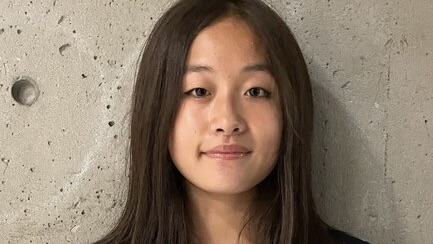Mandi Jin, a high school junior from Calgary, Canada, discovered her passion for data science from her family, and after conducting research on educational inequity with a female head of actuary science. This experience led her to create the “Youth Data Science Inspiration” project, for which she received a grand from the Alberta government, which now has over 1,000 participating youth Mandi believes that the future of data science will be more diverse and inclusive thanks to organizations like WiDS.
Tell us about your background.
I am currently a junior at my high school in Calgary, Canada. Growing up, I was surrounded by a family with an empowering passion for technology and engineering, so it only made sense for me to develop this love as well.
How did you get interested in data science?
In the summer of 2021, I was fortunate enough to be given the chance to pursue data science research with a female head of actuary science at the University of Calgary. We utilized statistical three-factor and longitudinal analysis to research the inequity in education systems around the world based on ethnicity, socioeconomic status, and gender biases. After months of preparing the study, I could have never imagined that it would be published in the American Journal of Mathematical Modelling and Applications. This research experience opened my eyes to the incredible potential of technology and data science in having the ability to be applied in various interdisciplinary fields. As an individual who has a strong interest in various social injustices, it is interesting to see how data analysis can be incorporated to not only analyze but also predict future trends.
What are you currently working on?
Working together with the WiDS Next Gen Committee, I have created the project “Youth Data Science Inspiration” to encourage youth into exploring passions within the field of data science. I was able to receive a $4341 grant from the Alberta government and we now have over 1000 participating youth. The goal of this project is to get youth acquainted with industry innovations and to become future problem solvers and social entrepreneurs. I truly hope that this project can inspire many other students, like myself, to grow a passion for data science. The students are mentored by researchers from universities and subject matter experts from various industries to cover the topics of sustainable industrialization, sustainable economic growth, and new energy transition.
How did you first discover WiDS?
After discovering my passion for data science, I realized that there were limited opportunities to explore this field in my region. Thus, my idea of the “Youth Data Science Inspiration” project was born as a part of Bright Youth Journey. However, even with this idea I had no clue how to put it into action. After quite a long time of googling, I stumbled upon WiDS. I was connected with Caroline Bauhaus, the previous leader of the Next Gen Student Committee and she and WiDS Next Gen committee member, Veda Kamaraju, helped by providing me with resources in being able to run this project.
How has WiDS made an impact on your life and/or work?
Without WiDS, I wouldn’t have had the support to be able to make such an impact with the “Youth Data Science Inspiration” project. I was able to work with the WiDS Next Gen Committee in getting resources, for example, Module 2’s Visualization Lesson. I felt as though WiDS truly propelled and motivated me in promoting data science among youth female girls.
What comes next for you? What are your hopes for women in data science in the future?
After completing my senior year of high school, I hope to pursue a double major degree in data science and political science to further my interests of technology. I hope that women in data science will become more visible and prominent, serving as role models and mentors for future generations of women in the field. Many of the empowering female data scientists here at WiDS continuously empower me in continuing my path in data science. With WiDS, the future of data science will be more diverse and inclusive, with equal opportunities and representation for women and other underrepresented groups.


